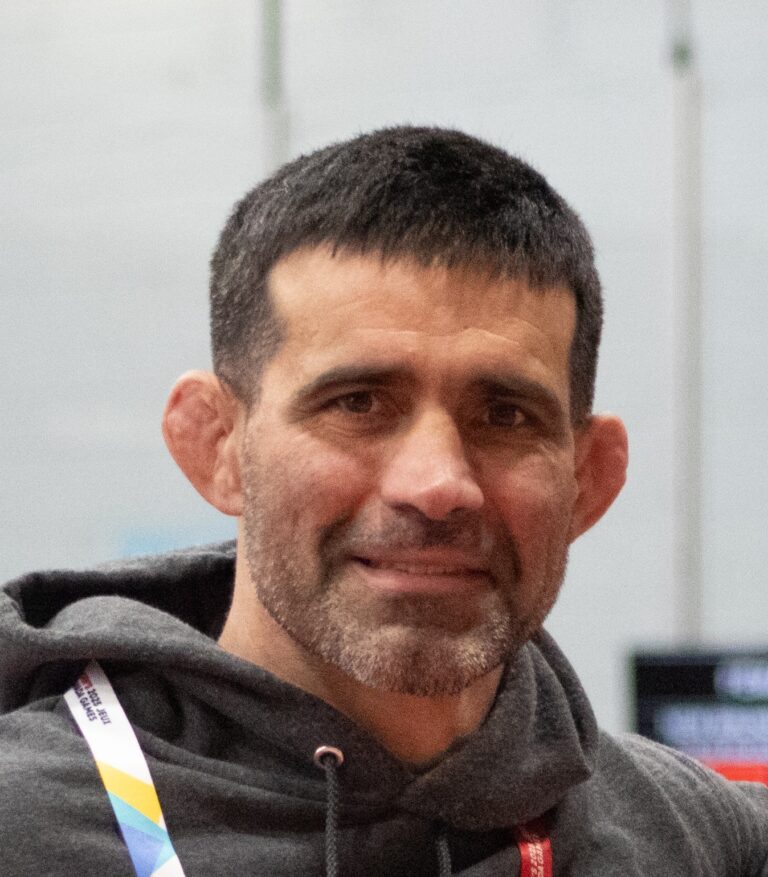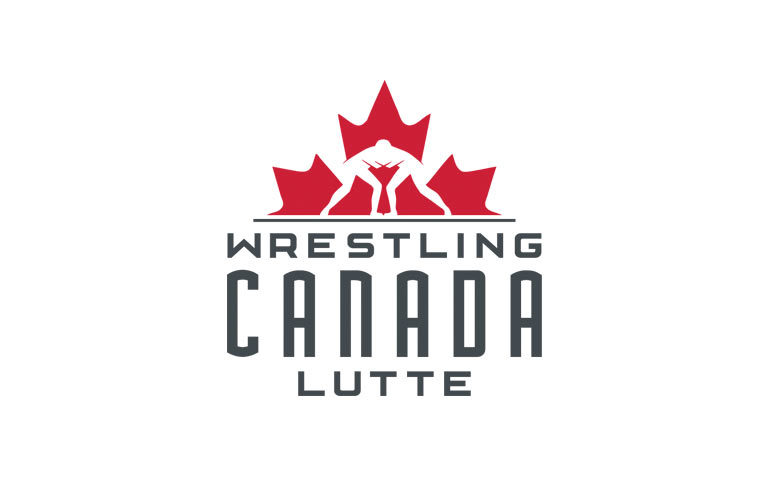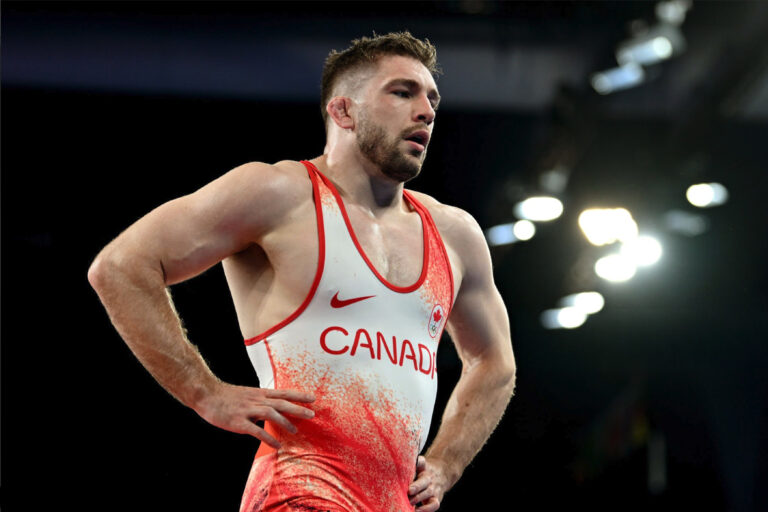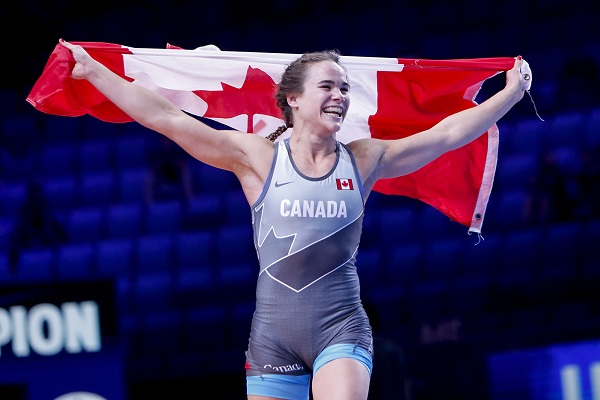Where are they now – Leah Ferguson
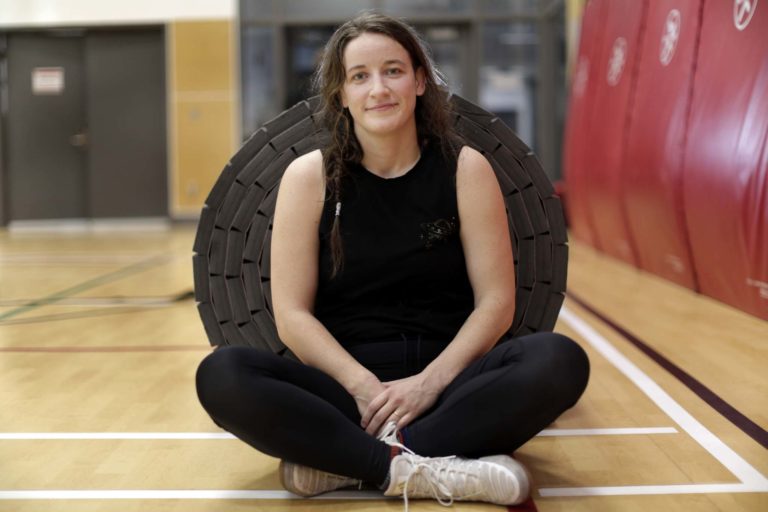
Creating more opportunities in wrestling
Leah Ferguson did not fall in love with wrestling the first time she stepped onto a mat. It took her almost seven years, and overcoming multiple challenges, to realize her passion for it. Yet even as the former Olympian transitioned out of active competition, she wasn’t ready to leave the sport behind. Now, Ferguson is giving back as a coach but also with her latest initiative: leading a program that works with different Indigenous communities in Manitoba to help restart and establish wrestling programs and push towards the 2023 North American Indigenous Games (NAIG).
Ferguson grew up in Mackenzie, British Columbia a rural town in the northern part of the province. She was drawn to sports from a young age and when a wrestling program was started at her high school, she was invited to join. At the time, she was vying for athlete of the year and a key criteria was the number of sports participated in, so she decided to give wrestling a try. “I was an all-around athlete, I did all sports, so I got recruited to try. I didn’t fall in love at first because it was so hard and I didn’t really like it, but I really wanted to get athlete of the year in my town,” remembers Ferguson.
While it may not have been her favourite sport, Ferguson stuck with it and eventually became as passionate as anyone. She went on to make the provincial team, compete in nationals and was recruited to the University of Calgary to be on their team. After her second year, she made the national team and began to experience wrestling on the international stage. “That’s when I fell in love with it. Seeing the world stage and the different styles was amazing. After seeing how the countries wrestled differently and their diverse strategies, I was hooked.”
Ferguson had many moments in the sport she says she will remember fondly, like the 2006 Pan-American Championships in Brazil. Ferguson dropped all her round robin matchups yet earn a medal round match with an undefeated Brazilian wrestler. “It was so hard, and I thought I was going to quit the sport, but I went out, wrestled and gave it my all. The Brazilian crowd was going crazy, I was down 3-1 but I pecked away and I hushed the crowed. I won the match, it was awesome! The American wrestler ran up and hugged me because it meant she got the gold. I think I ended with a bronze.”
While Ferguson did represent Canada at the 2012 London Olympics, she says it was more of the lead up experiences that she will remember such as training camps, planning schedules and the notion of being a professional athlete.
In 2013, Ferguson began transitioning to coaching as an assistant at the University of Calgary. In 2016, she took the head coaching job at the University of Winnipeg, before moving away with her husband to start their own club, Keystone Wrestling Club, and do her own final push towards Olympic qualification. “It was really about overcoming hurdles I never anticipated and taking charge of my career. I needed to get the love for the sport back. Being able to give it to others and be community and high performance focused was an amazing experience.”
With the club now established in Winnipeg, she started working with grassroots coaches and trying to help develop Indigenous coaches, something Ferguson was introduced to as part of her role with the University of Winnipeg. She did that and trained for her own competitions until she retired in 2020.
Working with Indigenous wrestlers and coaches was something that resonated with Ferguson because of her northern upbringing. Doing the trips to northern Manitoba, as part of her contract with the University of Winnipeg, opened her eyes to potential opportunities. She was working with the Manitoba Aboriginal Sports and Recreation Council and then went on maternity leave. She decided not to return to the job but wanted to continue working in the field, particularly with wrestling development. “We did a big push for NAIG 2020, to develop our wrestling roster and coaches before COVID put a pause on it. Throughout the pandemic, I was in touch with the coaches talking with them about what they needed to get their programs restarted.”
Ferguson had previously applied for and been awarded a Sport Innovation Grant for a grassroots wrestling coach development program that taught non-wrestlers how to be wrestling coaches. She understood the effect funding could have. So, in 2021 she applied for the OLY Canada Legacy Grant to continue working with Indigenous communities and developing wrestling programs. “When I saw the grant this year, it was bigger than it had been because Lululemon had partnered with it. I thought we could do some significant rebuilding with it in the lead up to NAIG 2023. That’s what got me going on it. Knowing there is the potential to help Indigenous coaches restart their program, recruit and offer support is awesome!”
Now that Ferguson has been awarded the grant, she is planning out all the detailed goals of the project. “I would really like to bring the PSO, PTSB together in a more significant way for the NAIG project so there is more legacy. Also, I am looking to partner with an Indigenous nonprofit that does outdoor education to do some cross-cultural training with the athletes.”
Ferguson adds that there is a big recruitment push towards NAIG 2023, and she would like to hold some camps around the tryout period. In addition, once the team is selected, she is hoping to partner with a university to bring the team to train and see what a university program looks like. “I want the athletes to see that they can do it too, they are of the caliber. For many, university can be intimidating, even though they have the skill set.”
Long term, Ferguson is hoping there is a legacy from the project. She hopes to create a network or team with the same passion for developing Indigenous wrestling as she does. For now, she is trying to bring attention to the project and show how it can be done. “Individual sports, like wrestling, are much easier to execute in remote locations, which is what many people are dealing with. To have an inspired group of people come out of this project who want to continue the work and see more resources put towards it is something I’d love. I hope this can be an exciting initiative for everyone in wrestling in Canada because it can have a huge impact.”
Subscribe to our newsletter
Receive the latest updates from Wrestling Canada Lutte.
